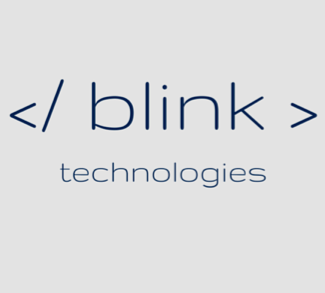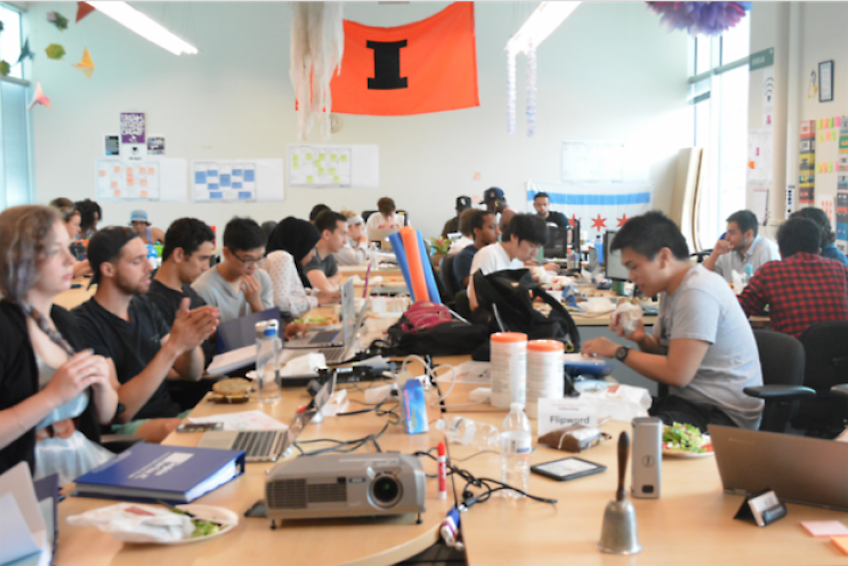We’ve seen many (I mean MANY) startups crop up in Research Park in the past couple of years. Startups to design biomedical devices, connect friends via social media, and to fly drones autonomously. I had the opportunity to chat with Mayank Kale, CEO and co-founder of Blink Technologies, to discuss why Blink is not your average startup.
When I first heard the name Blink, I had envisioned a google glasses android app that pays your utility bills at the blink of an eye. Or a medical device that helps diagnose eye patients. Boy, was I wrong. Blink is far from your typical ultra-convenient, first world problems sort of technology. Blink is actively helping non-profit workers convert census, household and healthcare data in developing countries into electronic, transferrable and relatable materials.
When I asked Kale how Blink works, he said it was very simple.
“Health workers can use the software and tablets to record census data for households in developing or underdeveloped regions across 20 metrics. This includes identifying number of members, their gender and education. Additionally, the tablet can collect household information such as sanitation and where they receive their water from.”
What’s the end goal of collecting census and household data? The goal is to create a platform for healthcare workers in developing regions to load and share healthcare data worldwide.

Non-profits are having to hire 3-4 staff just to transfer paper records into electronic data in these developing regions, and Blink streamlines the data, making it easy and efficient for workers to record data electronically. Blink’s first product is about 100,000 lines of code and took Mayank and his partner, Kyle Hirschfelder, around eigh weeks of sun-up till sun-down work to write. After finishing the code, Mayank flew to India to deploy the software in 125 remote villages for their first client, the India-based non-profit group, CRRID. What did they find? The software worked extremely well, taking only three minutes for a healthcare worker to pick the tablet up and learn how to record data with the program. Since deployment last June, Blink has helped CRRID record over 60,000 records in India.
However, the extent of Blink’s humanitarian applications has only begun. Their next product, a platform to record and share healthcare data peer-to-peer, will deploy in Sierra Leone in Late January 2016. The purpose of this platform is to enable healthcare workers to send data peer-to-peer, as server connectivity is low in developing regions.
I was taken aback by Kale’s next comment:
“Much of the reason the Ebola outbreaks were such a humanitarian disaster was due to the inability of healthcare workers to share data about incidence and occurrence of cases. The reason they cannot share data is because these remote areas have little to no internet access. We developed Blink to take care of that, to utilize peer-to-peer technologies so that a disaster of this kind won’t happen again.”
Basically, Kale wants to revolutionize the way non-profit healthcare workers take data without completely disrupting their system. Peer-to-peer sharing ended being the essential technology for Blink to propel efficient healthcare records recording and sharing amongst workers worldwide.

Sierra Leone, photo from the The Washington Post
He said:
“A human blinks 60 times a minute without even noticing. Just like that, we want to create a technology that helps people perform an essential function, but at the same time be undisruptive or invisible to the user.”
Kale, currently a junior in the Computer Science program of U of I, does not come from a medical background but does come from a family of entrepreneurs. He and his work partner will be attending the first ever e-health conference in Bologna, Italy, between Universita di Bologna and U of I to present their work to a panel of Italian healthcare professionals. It seems that Mayank’s dream of providing a worldwide healthcare platform may come to fruition sooner than we think. Mayank’s vision can pave the way for a new genre of tech ventures in Research Park: the humanitarian tech startups.
Follow Blink Technologies’ progress at the iVentures Accelerator Website.








